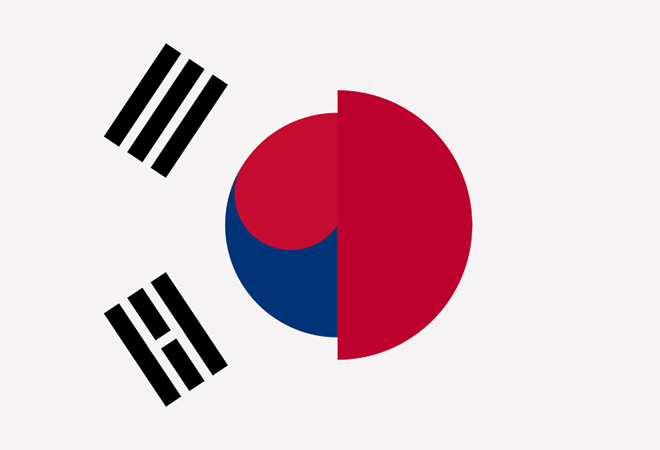 Japan and S. Korea are at each other's throat once more after the renewal of GSOMIA. (Image via www.orfonline.org)
Japan and S. Korea are at each other's throat once more after the renewal of GSOMIA. (Image via www.orfonline.org)
Japan, S. Korea at it again after GSOMIA renewal
Just last week after both countries agreed to renew the military-information sharing pact temporarily, Japan and South Korea (S. Korea) reminded the world once more of how fragile their bilateral relations have been.On Friday, just before the General Security of Military Information Agreement (GSOMIA) expired at midnight, Seoul agreed to extend the agreement temporarily. All along, GSOMIA acts as trilateral cooperation between Tokyo, Seoul, and their Western ally, the United States (U.S), in tackling North Korea’s (N. Korea) nuclear activity and China.
On Monday, officials from Japan and S. Korean exchanged blows on media over each other’s statements. Tokyo stated that Seoul had done a great action and hoped to maintain the trade talk despite it would not restore S. Korea’s exporter status in its whitelist.
On the other hand, Senior Press Secretary of the Blue House, Yoon Do-han, stated on Sunday that they had lodged a protest against Japan’s Trade Ministry’s announcement to continue the trade curb and export screening of three important chemical components to S. Korea.
On Monday, Seoul denied a statement from an official from Japan’s Foreign Ministry on Yomiuri Shimbun that Tokyo did not apologize.
Less than two hours after Yoon’s statement, Japan’s Chief Cabinet Secretary, Yoshihide Suga, said that GSOMIA’s extension had nothing to do with the trade talk. Furthermore, Suga stated that S. Korea could say anything it wants, and he sees it unproductive to contradict its statement every time.
Both Japan and S. Korea keep on contradicting each other and claim that they know the truth.
The conflict between Japan and S. Korea rooted in the wartime dispute and labor in Japan’s invasion on the Korean Peninsula in 1910 – 1945.
In November 2018, the Supreme Court of S. Korea demanded Japanese companies in S. Korea to compensate for the wartime labor, an issue the Japanese claimed had been solved through the 1965 treaty. The incident leads to the whitelist feuds and Japan’s export control.
On Saturday, the Foreign Ministers of the two countries agreed that the President of S. Korea, Moon Jae-in, and the Prime Minister of Japan, Shinzo Abe, need to hold a summit on the sidelines of the trilateral meeting with China. For over a year, Abe and Moon did not hold a summit, and both just talked for around 11 minutes during the ASEAN summit in Bangkok.
For the trade issue, the Japanese and S. Korean trade authorities are expected to meet this week.
Source: https://reut.rs/33gcpo4
 English
English Japan
Japan

her pink pill india tadalafil tablets 20 mg buying viagra what is tadalafil made of sildenafil 50 mg side effects best canadian mail order pharmacies
neurontin percocet neurontin cost uk what disease would ypu take neurontin how many days early can you fill gabapentin
action of furosemide furosemide 20 mg when lasix doesn't work for chf what does lasix do for dogs
furosemide side effect furosemide 100 does lasix cause kidney failure what lab is monitored when giving lasix
covid 19 plaquenil hydroxychloroquine tablets 10 mg benefits of plaquenil for lupus what does a plaquenil rash look like
sildenafil generic price costco what is viagra buy cenforce 200 mg shelf life of cialis past expiration date cialis rebate homemade viagra generic trulicity prices where to buy grapefruit seed extract how to make liquid viagra voguel sildenafil 50 mg natural viagra for men low libido in women treatment cost of 100mg viagra pill women viagra best price for generic viagra legal recreational drugs valium and grapefruit side effects walmart medication prices without insurance viagra price how does viagra work video sildenafil for hypertension check pharmacy prices at walmart goodrx viagra best supplement for women's libido lowest price for cialis 20 mg cialis vs viagra sildenafil cost walmart dose of sildenafil for pulmonary hypertension otc viagra pfizer patient assistance application pdf
prednisone and diarrhea does prednisone cause hot flashes how to take prednisone 10mg
neurontin meds alternatives to neurontin for nerve pain what works like gabapentin
furosemide mechanism furosemide 20mg tablets cost furosemide 40 mg weight loss how can i sop itching in the vaginal area due to lasix
lasix ivp lasix water pill 20 mg buy no prescription how long does lasix take to work administering furosemide too quickly can result in what
plaquenil image plaquenil 100 mg tablets plaquenil used for covid 19 how to stop plaquenil
best price for cialis cialis for blood pressure control list of fda approved indications viagra vs.levitra brand viagra vs generic viagra viagra pics before and after
provigil ingredients modafinil good rx how to get modafinil prescription how to respond to provigil class action
zithromax tablets azithromycin online can i eat yogurt while taking azithromycin what is azithromycin 250 mg tablets used for
prednisone reviews no prescription online prednisone supplements to take while on prednisone how long can a dog be on prednisone for cancer
goodrx price quote over the counter depression medication pfizer viagra price herbs for prostate viagra blue pill 100 lilly samples for physicians
modafinil causing fatigue modafinil dosage for depression how much modafinil should i take how to convert adrafinil to modafinil
order priligy usa priligy 60 mg australia is priligy over the counter new mexico albuquerque who manufcture priligy
pills for women's libido drug to increase female libido cialis every day viagra vs cialis best supplement for low libido otc samples for healthcare professionals